LawFest organiser Andrew King continues a series of interviews with key legal professionals with their innovation and technology stories.
Helen Mackay is the Director and Lawyer at Juno Legal.
What does legal innovation mean to you?
To me innovation means looking with fresh eyes at the delivery of value by lawyers, which is far broader than legal services. The literal meaning of ‘innovate’ is to create a new process or idea and this is exciting when the practice of law has been slow to change. Lawyers need to better define their value proposition beyond giving legal advice. For me it includes critical thinking, complex problem solving and good judgement. The challenge for in-house lawyers is to better contribute these skills in fast-paced, demanding environments. They are increasingly working in agile environments and for companies that must innovate or die. It will take creative thinking and rigorous analysis for lawyers to disaggregate what they do and find new ways to deliver better outcomes and value for clients.
What role does technology play in innovation?
I see technology as enabling and supporting innovation by stripping out the inefficiencies and repetition that is common in legal work. Better collaboration, project management and visibility are goals for most legal departments and there are some quite simple technological solutions that can help achieve these.
What pressures are organisations facing in the delivery of legal services?
Law has traditionally been a reactive and deadline driven profession. This has led to the exponential growth of in-house legal teams but it is not feasible to continue to expand. The law of induced demand says when a resource is free the demand for it is infinite. Fees charged provide a natural check on demand for external legal services. For in-house legal functions with no internal charging mechanism, this resource is seen as free and the demand is infinite. When everyone in an organisation can instruct the legal team and there are no parameters on what requires legal review, legal teams are overwhelmed and stuck in firefighting mode. A surprisingly low number of in-house legal teams have a target operating model or guidance on when and how the legal team should be instructed. Our message to the clients we work with is when legal teams train their internal clients to effectively use their services, the team is able to contribute far more value to the organisation. An operating model and charter help to focus the internal legal team on the areas of greatest importance and enable them to have much better conversations with their internal clients.
What developments do you see in how legal services are delivered?
I think the question of ‘what are legal services?’ will continue to evolve. In most in-house environments these go far beyond the strict definition of ‘legal work’ and are increasingly multifaceted. Thinking about parallels in the accounting world, no large chartered accounting firm would describe their work as purely ‘accountancy services’. Legal work will continue to be disaggregated and pushed out and down. New Zealand has been slow to benefit from the evolution of alternative legal services providers but we are seeing more legal teams using legal process outsourcing (LPOs), NewLaw firms and legal technology providers and thinking much more carefully about what to retain in-house and what to send out to external providers. Automation will obviously be a game-changer and is making significant progress. We are also seeing an increasing amount of co-sourcing where two or more in-house legal teams with similar issues jointly instruct work and share the cost.
What are some of your tips to start innovating or developing an innovative mindset?
I think people worry that innovation has to be huge, transformative and technology-based to count but in my experience the teams that have gone the furthest over time have adopted an incremental approach and are constantly refining what they do. Design thinking releases lawyers from their traditional critical mindset and allows them to freely think about problems and potential solutions. I have led design workshops with legal teams where the creativity and change appetite of lawyers has surprised their leaders. The key in any change process is to ensure people’s fundamental needs for control and inclusion are met.
Why is it important for legal professionals to continue to learn about legal innovation and leveraging technology?
The world is changing around lawyers and many seem to think they can hold back the tide. The legal profession is one of the few that hasn’t yet been substantially disrupted and the longer the status quo remains, the bigger the potential impact will be. I think lawyers, both private practice and in-house, need to carefully define what their value propositions are and how technology can help them deliver better outcomes for their clients.
